How to Match Escaped and Non-Escaped Characters with Regex
 Rabah Taib
Rabah TaibMatch a non-escaped character
Final result
const regexp = /(?<=(?<!\\)(?:\\{2})*)@/
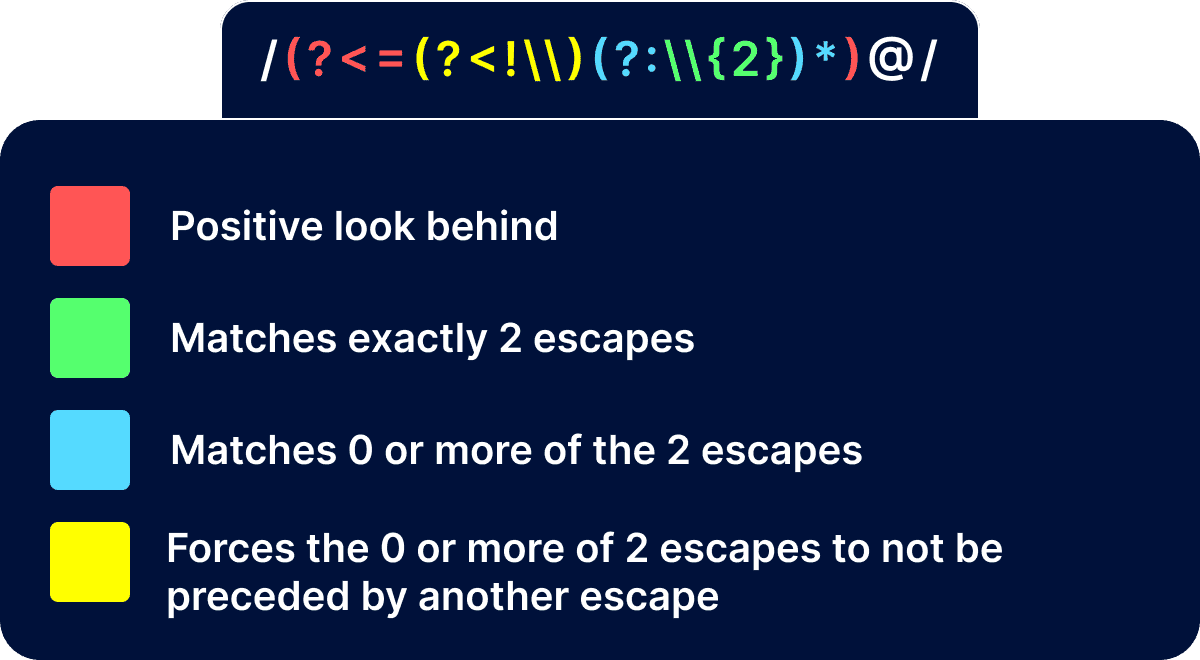
Though process
First, let's start with the most common solution: a regular expression that matches (@) not preceded by an escape character.
const regexp = /(?<!\\)@/
The problem with this regexp is that it only checks the first character to the left:
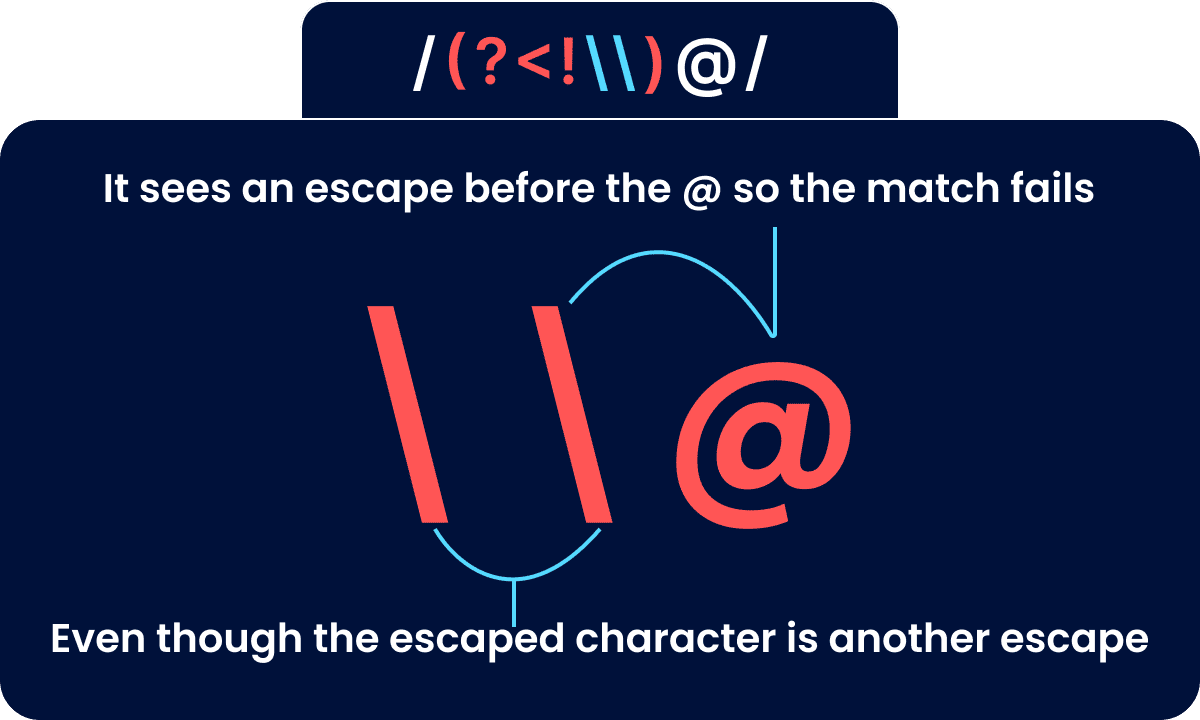
To fix that, we need to ensure that (@) is preceded by zero or more pairs of escape characters:
const regexp = /(?<=(?:\\{2})*)@/
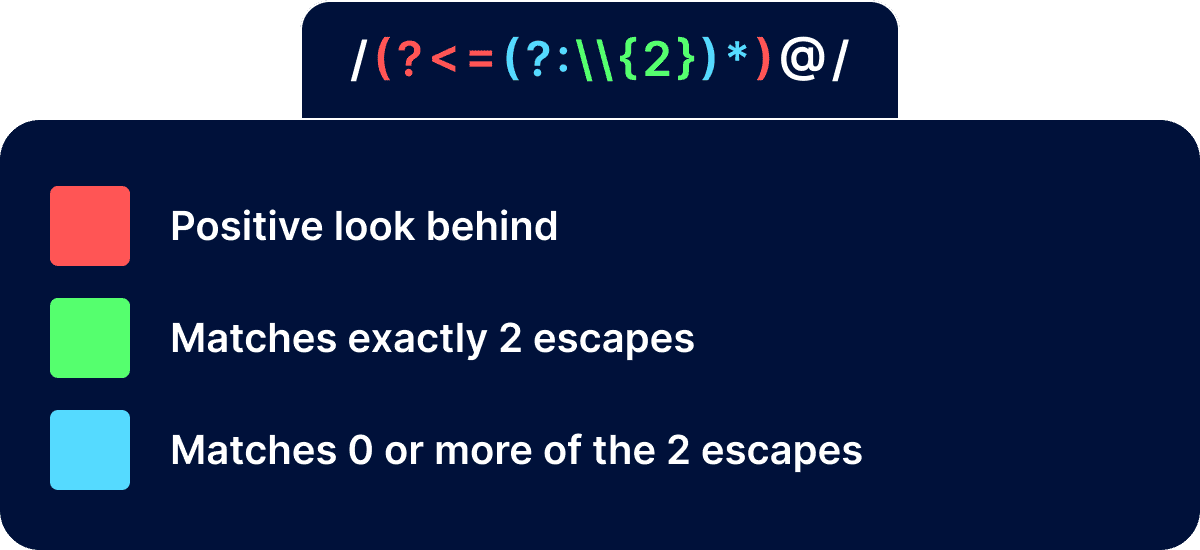
We still have one last problem: (@) being preceded by an odd number of escapes also means it's preceded by an even number of escapes. This means the regexp will succeed with any number of escapes:
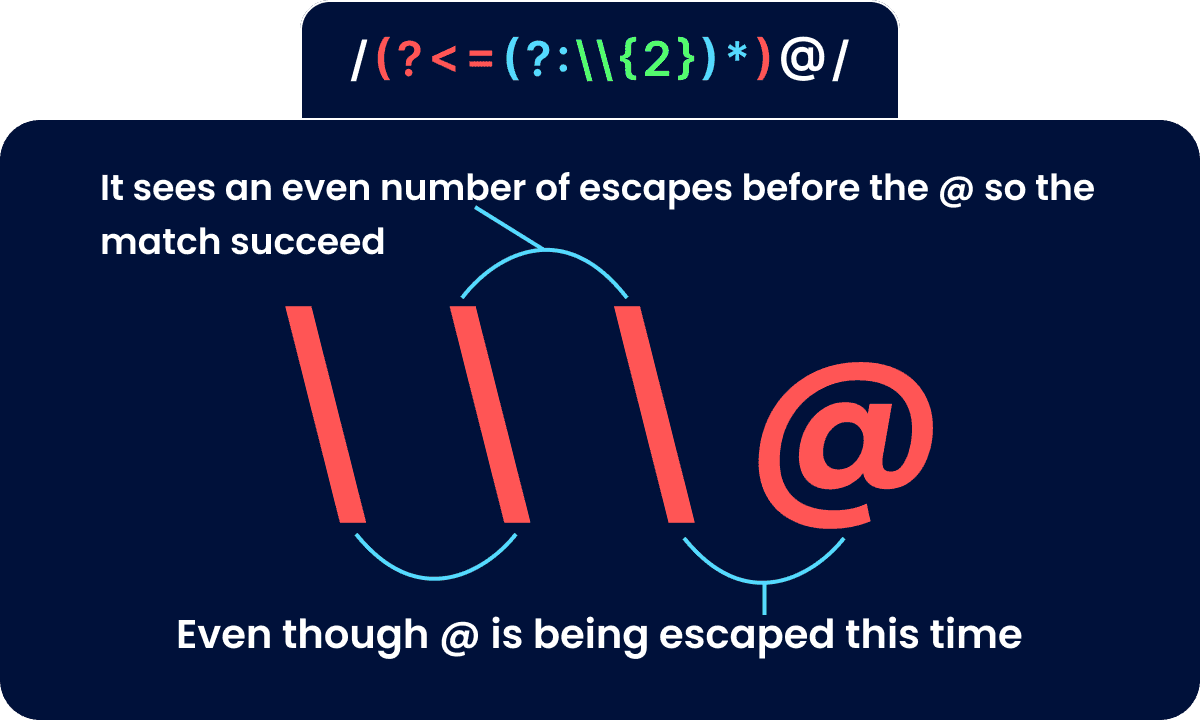
To fix this once and for all, we need to make sure the regexp only succeed if the even number of escapes are not followed by another escape:
const regexp = /(?<=(?<!\\)(?:\\{2})*)@/
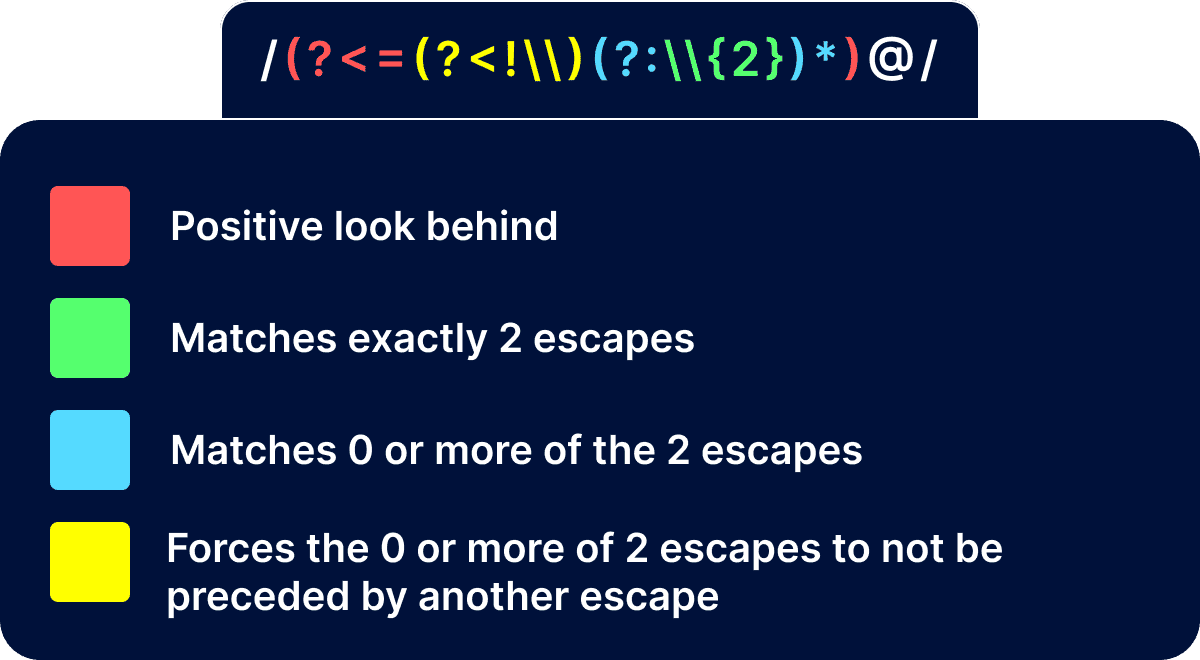
Match an escaped character
Final result
const regexp = /(?<=(?<=(?<!\\)(?:\\{2})*)\\)@/
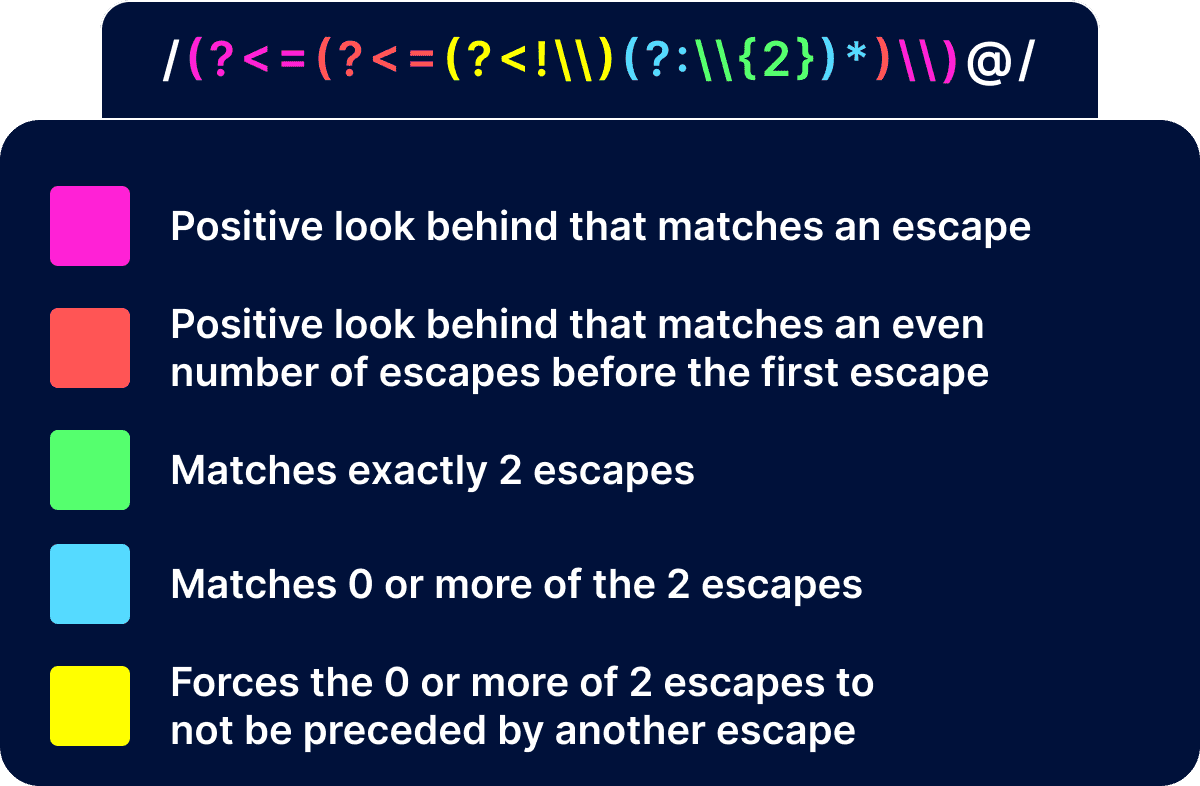
Thought process
To match an escaped character, we need to adjust the regexp so it matches (@) that is preceded by an escape, and that escape must be preceded by an even number of escapes, making the total an odd number of escapes.
Subscribe to my newsletter
Read articles from Rabah Taib directly inside your inbox. Subscribe to the newsletter, and don't miss out.
Written by